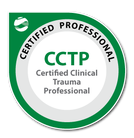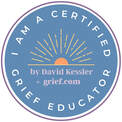|
"And the people stayed home. And read books, and listened, and rested, and exercised, and made art, and played games, and learned new ways of being, and were still. And listened more deeply. Some meditated, some prayed, some danced.
Some met their shadows. And the people began to think differently. And the people healed. And, in the absence of people living in ignorant, dangerous, mindless, and heartless ways, the earth began to heal. And when the danger passed, and the people joined together again, they grieved their losses, and made new choices, and dreamed new images, and created new ways to live and heal the earth fully, as they had been healed." ~Kitty O'Meara In this time of isolation and panic, it is easy to get caught up in the anxiety of what will happen. We are in a time of transition right now, where the world that we all knew just a few weeks ago is gone. We are grieving not only the people who have lost their lives to this disease, but the other losses as well. The loss of proms, conferences, vacation plans, hugs from friends, and many other things we took for granted. With all of this change happening so quickly and dramatically it is a concern in the mental health field that people will be traumatized by the sudden shift and magnitude of losses. There are seven elements that have been identified which can lead to trauma. Traumas can happen when any one or combination of these elements occur. In order to avoid being traumatized by the events of the COVID-19 pandemic, I would like to share these elements and what you can do to avoid being traumatized by them. These are based on the work of Dr. Bessel van der Kolk, a leading trauma researcher. Lack of predictability- .Trauma can happen when we lose the sense of predictability and routine in our lives. Without a natural day to day rhythm we may feel lost or disheveled. In order to avoid being traumatized, create a routine. You may set your alarm to still get up at a certain time, go for a walk or do some exercise at a scheduled time. Create a schedule and routine doing what you can and what you enjoy. Immobility- During trauma our body is often not able to move to avoid the danger, for example, being trapped in a vehicle or being held against our will. Although we are now sequestered in our homes, it is important to keep moving. Too much sedentary activity can lead to trauma. Get up, dance, walk, run, garden, clean. It is important to keep the body active and moving. Loss of connection- Trauma creates a sense of being isolated and feeling alone. It is extremely important to retain our social connections during this time of physical distancing. Call friends, write letters, send a text, connect via social media. We are human and humans are hardwired for connection. It is in our DNA. Connect in creative fun ways with other people. Numbing out/spacing out- After a trauma the pain is so overwhelming that we don't want to feel it, so many people use numbing or disassociation to cope. Right now it is important to stay connected to our bodies. There is a tendency to want to numb by using substances, addictive behaviors or vegging out. While it is okay to binge on a show for a limited amount of time, when that becomes the day in, day out routine it leads to avoidance of the pain instead of tolerance of it. Limit any numbing or spacing out time. Seek help if the pain feels too unbearable. Loss of sense of time/sequence- The part of the brain that judges time is affected by trauma. It makes a day feel like it lasts forever and the current situation feels like it will never end. Remember this is temporary. Even though we can't leave the house, fill up your calendar with fun things to look forward to. Schedule a zoom lunch with friends. Go to a virtual concert, set up a regular time to go for a walk. I have loved watching New Yorker's celebrate at the change of every shift at the hospitals. Doing something at the same time each day gives touchstone points throughout the day to keep the sense of time intact. Loss of safety- This is a real challenge right now because everything and everyone seems dangerous. The packages that get delivered, the groceries, anyone who passes by feels like they may be a potential threat. While we do want to take recommended precautions, we also want to focus on our sense of safety. One of the things I often do with clients is to have them look around the room and name everything that could be dangerous. The lamp could catch fire, the ceiling could collapse, the scissors could cut me, etc. Then I ask them to look around the room and name what is dangerous without using the word 'could.' Suddenly there is a sense of safety. Right here, right now the lamp is safe, the ceiling is safe, the scissors are safe. Right now in this moment you are safe. You have enough air to breath, food in your body and shelter around you. You are safe in this moment. Breath in the sense of safety in this moment and feel your body relax. Loss of sense of purpose- We don't always know why traumas happen and there is no good answer for why so many people are dying from this virus that satisfies our quest for why. The better question to ask is what can we learn from this. In that question we find purpose. I love the poem that I opened with by Kitty O'Meara. It has been shared by thousands of people during this pandemic because it gives a sense of purpose to this. When we can find meaning and purpose we can heal. Take this time as the opportunity it is to find purpose. How can you help? How can you show up? How can you grow during this time? Although this is a challenging time, it does not need to be traumatizing. We will get through this together. We are being called right now to take care of each other and support each other. At no other time in our lifetimes has the whole world been affected in such a way that we are all experiencing the same crisis situation simultaneously. This is a unique opportunity to know that we truly are all interconnected with each other. Let's heal together to become a better world.
2 Comments
|
Archives
April 2020
Categories
All
|
 RSS Feed
RSS Feed




